19 Sep 2024
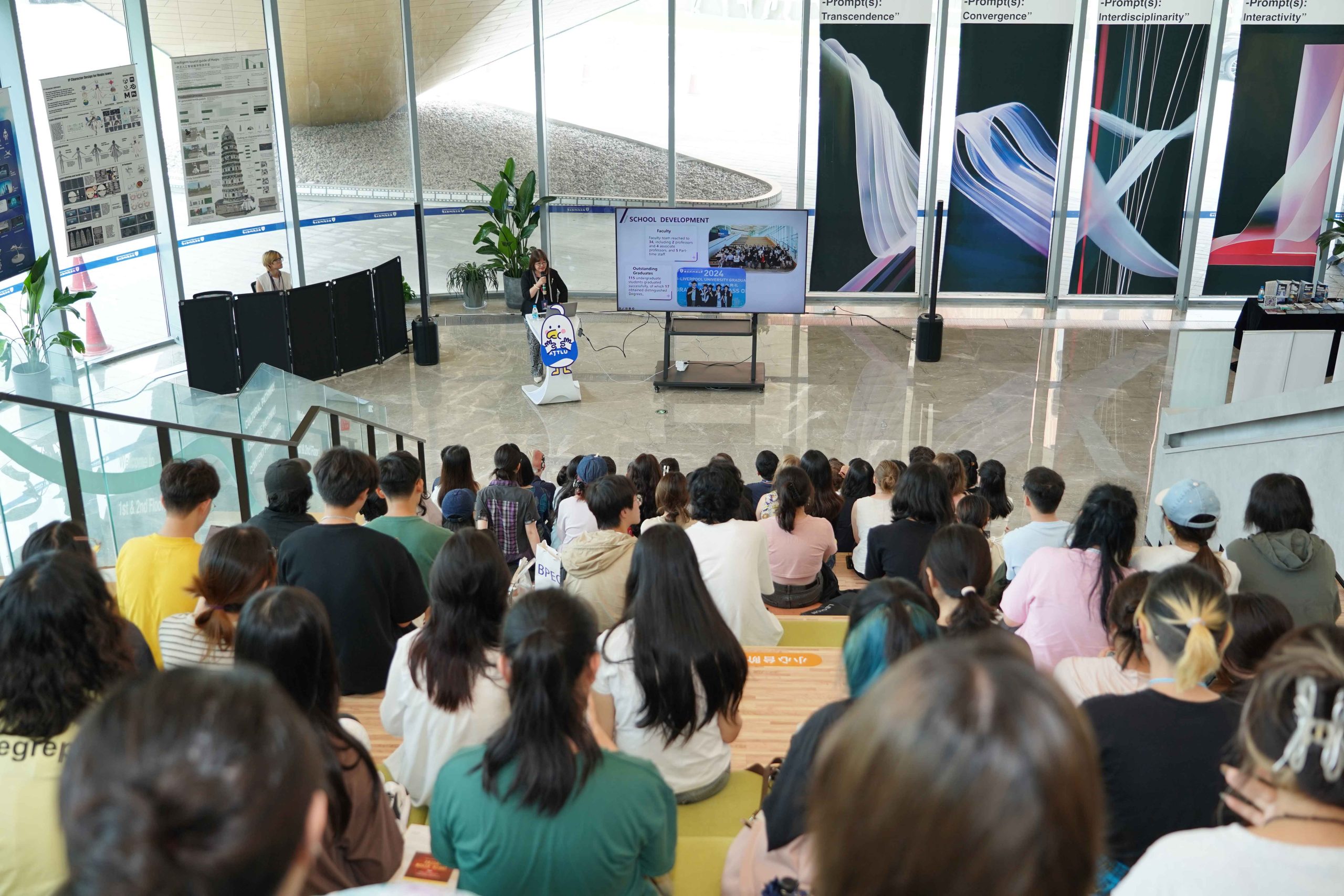
Recently, the School of Film and TV Arts (SoFTA) at Xi’an Jiaotong-Liverpool University held its annual Student-Staff Welcome Meeting in the school building, marking the beginning of the new academic year.
Dean, Professor Li-Chuan Evelyn Mai (pictured below) delivered the opening speech, warmly welcoming students and staff back to campus. She encouraged everyone to continue fostering creativity throughout the new academic year and to explore the limitless possibilities in film art, television production, and digital media. Professor Mai emphasised the school’s commitment to providing a vibrant and innovative learning environment to support students in achieving success in their future careers.
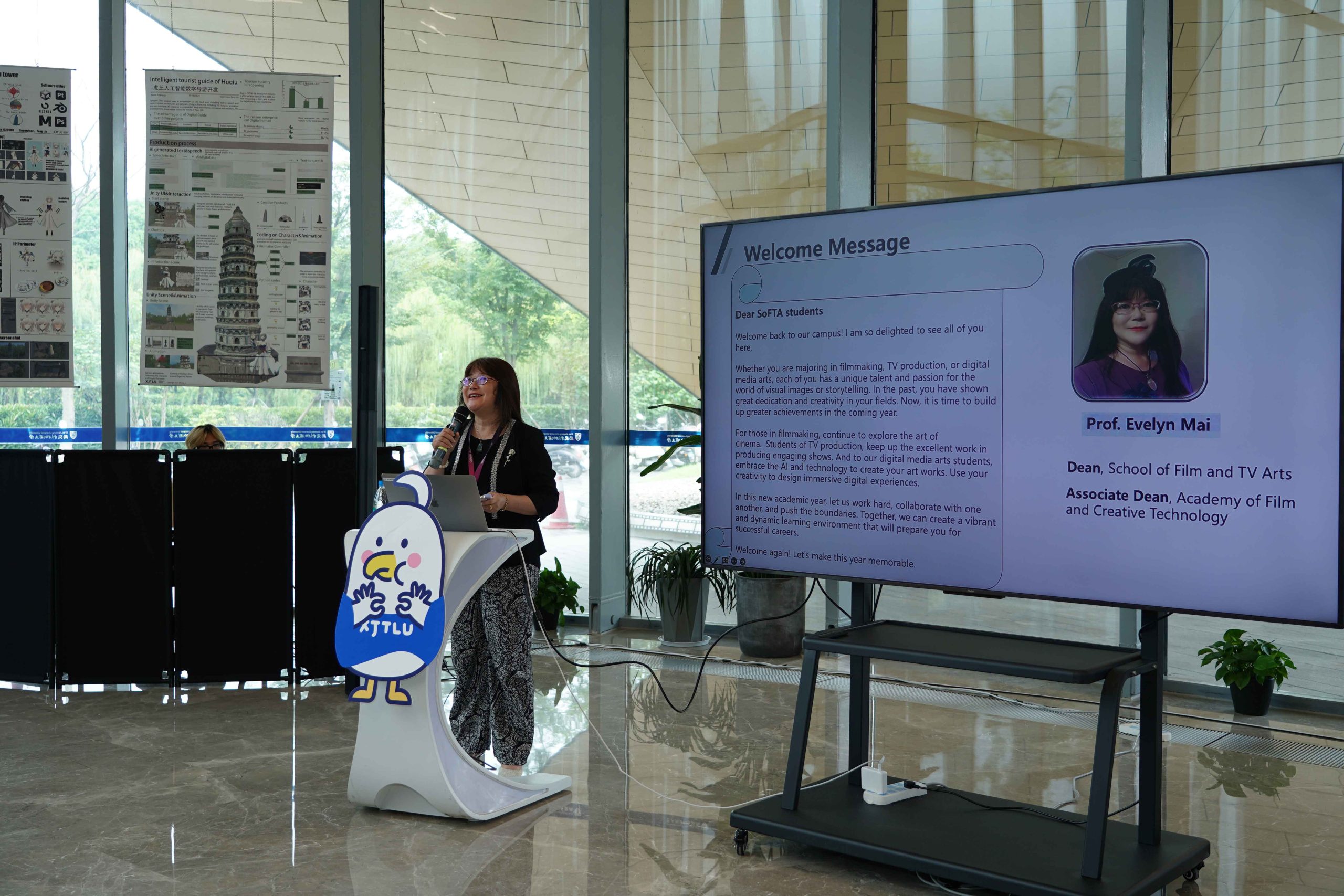
The welcome meeting also introduced four new faculty members: Professor Chul Heo, Dr David Lowden, Dr Michael Mackenzie, and Dr Wu-Wei Chen. Their addition brings fresh perspectives and expertise, further strengthening the school’s teaching and research capabilities.
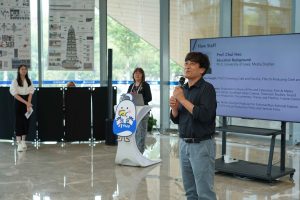

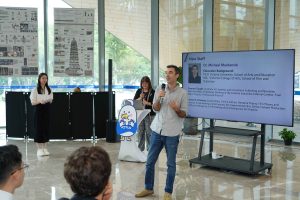
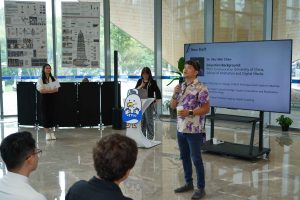
An overview of the school was also presented. SoFTA offers undergraduate, postgraduate, and PhD programmes, including Filmmaking, TV Production, Digital Media Arts, a Master’s in Cultural and Creative Industries, and a PhD in English, Culture and Communication.
The faculty team has expanded to 34 members, including professors and associate professors, all dedicated to providing high-quality education and guidance.
Last year, the school celebrated the graduation of 115 undergraduates, 17 of whom were awarded distinguished degrees, underscoring the school’s excellence in education.
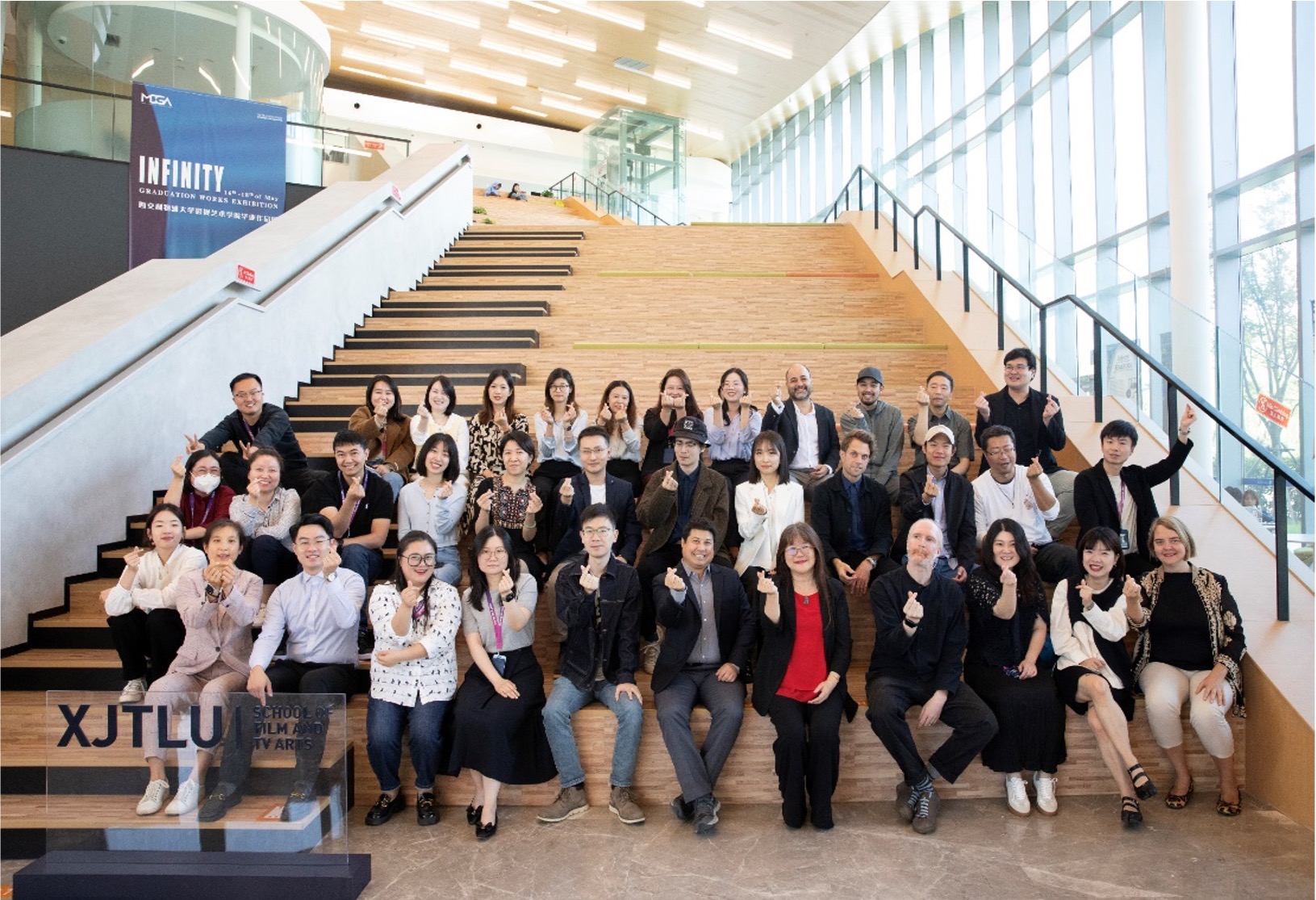
Regarding facilities, the school boasts 28 industry-standard setups, including the newly established IA219 Foley Studio—a professional sound effects lab equipped with cutting-edge sound production and recording technology. This state-of-the-art facility offers a professional-grade environment for creating sound effects, enabling students to engage in sound design, recording, editing, and post-production. The Foley Studio represents the university’s significant step towards enhancing students’ practical film and TV sound production skills.
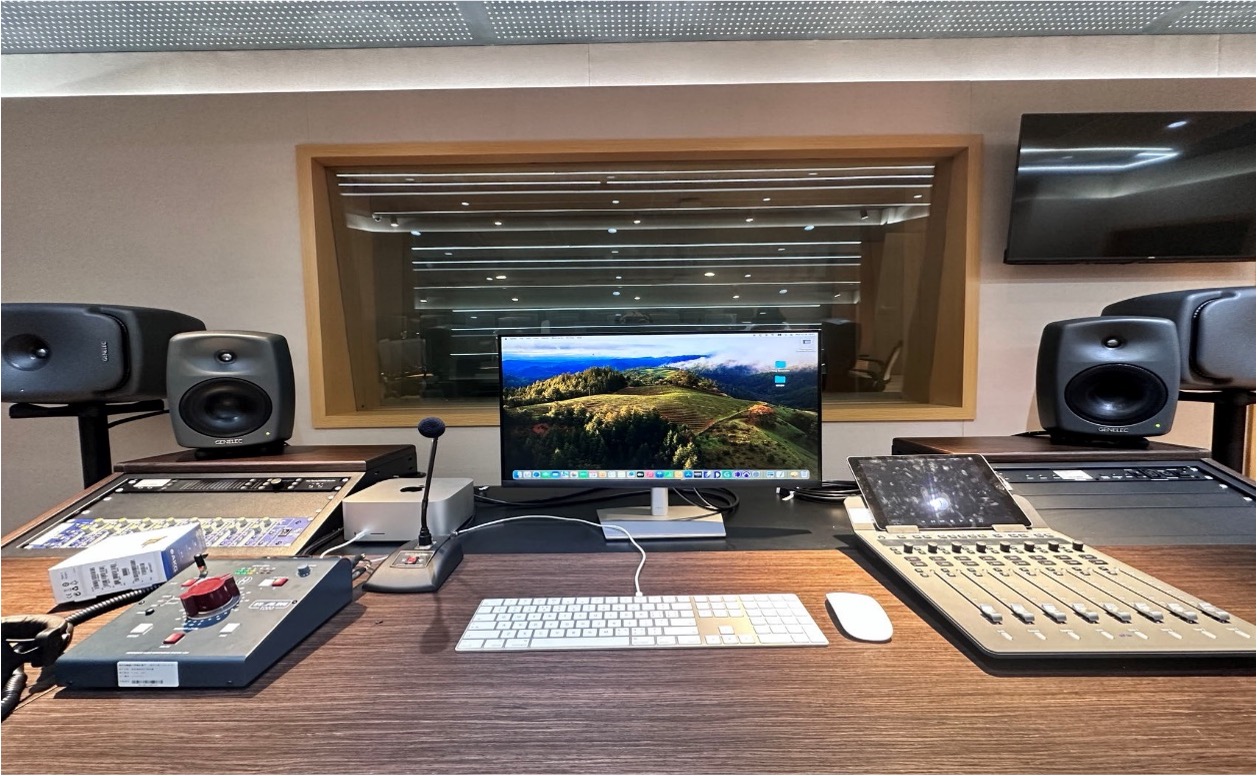
Furthermore, the school has accumulated 929 fixed assets, 457 new audio and video devices, 281 new digital media items, and 193 new consumables, alongside 2,226 pieces of portable equipment. This includes professional-grade cinema cameras like the Kinefinity 6K, Blackmagic Design 6K, and a DaVinci Resolve professional colour grading suite. All equipment is available for booking via the Connect 2 platform, ensuring easy access for students and staff alike.
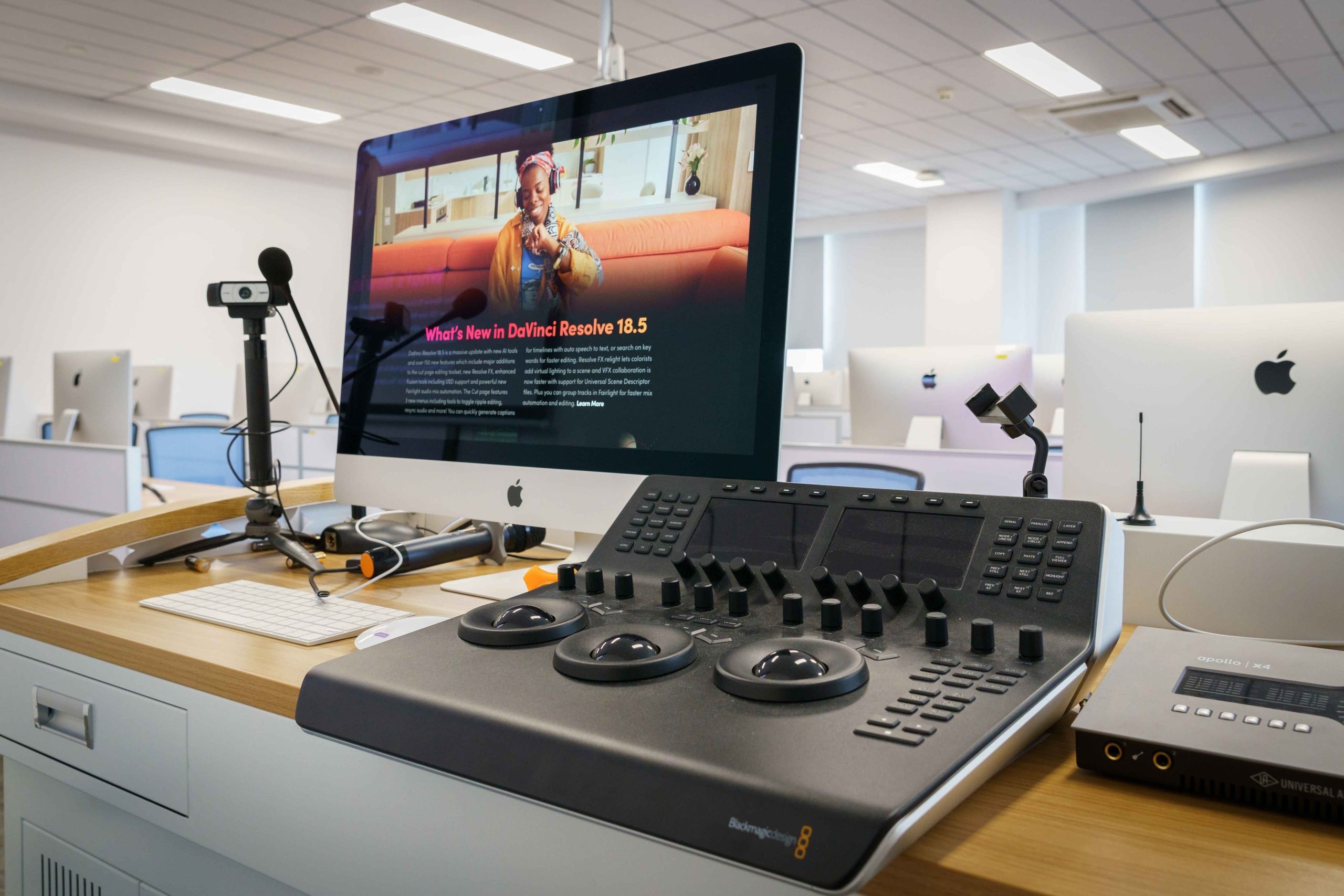
SoFTA’s industry partnerships span the nation, primarily focused on the Yangtze River Delta region, with Suzhou as a key hub. These partnerships, which include collaborations with prominent film companies, TV stations, online platforms, art theatres, museums, tourism, gaming, and cultural departments—both state-owned and private—provide students with a wealth of internship and practical opportunities. This past summer, 45 students secured internships at 15 different companies.
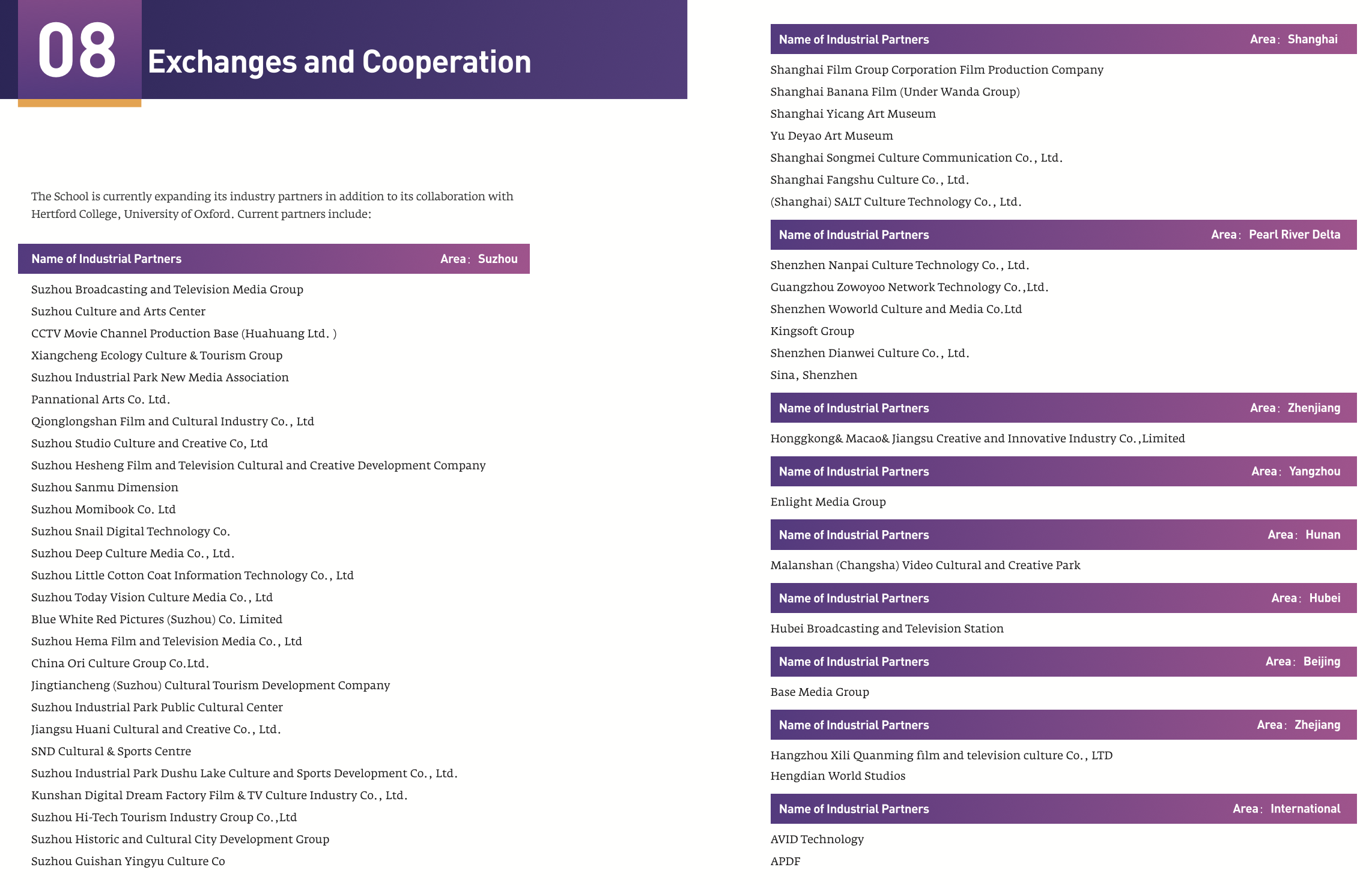
On the events front, SoFTA has successfully hosted four editions of the MEGA International Creative Media Festival and Digital Media Arts Exhibition. These events foster dialogue in film, television, and creative media and serve as a platform for academia and industry to share insights. Last year, the school also led the founding of the Suzhou Universities Film and Television Alliance, uniting eight local universities to advance education in film and digital creative industries, nurturing talent, and supporting the flourishing of Suzhou’s film industry.
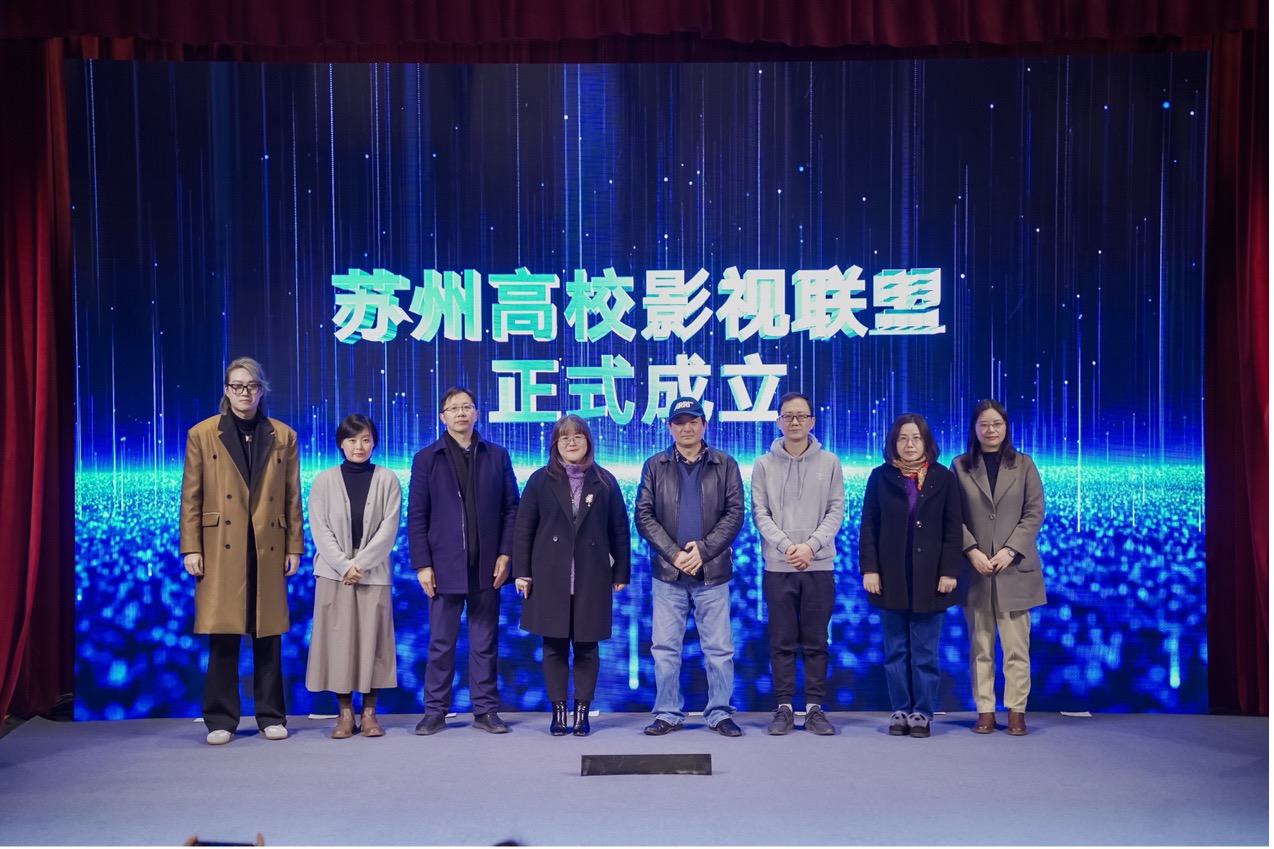
Meanwhile, the SoFTA Alumni Group held the official launch on 30 July, coinciding with the SoFTA graduation ceremony. This non-profit organization, guided by the XJTLU Alumni Office and founded by SoFTA alumni, aims to connect and serve alumni, foster communication and collaboration, and advance the film and television industry.
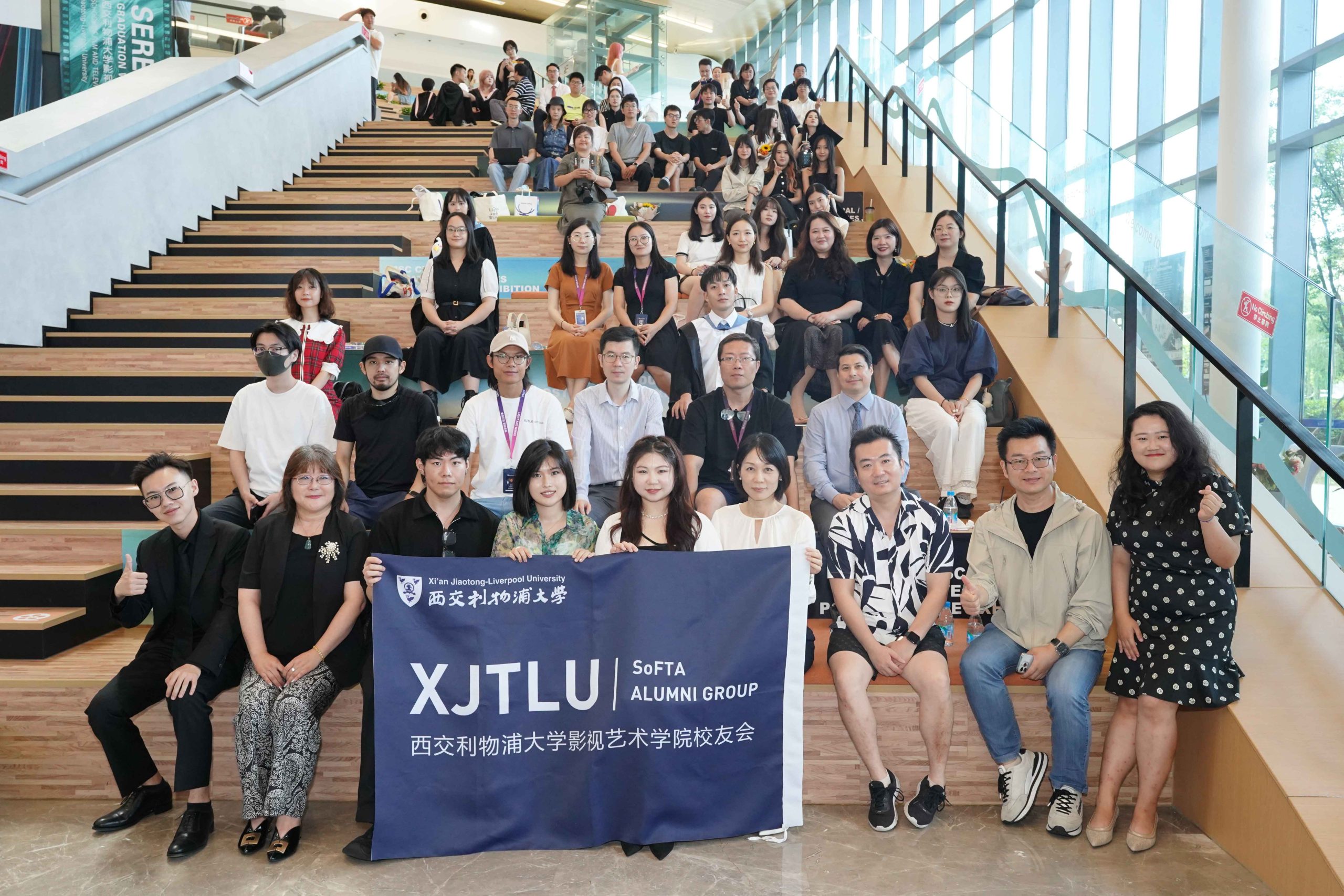
SoFTA offers many activities, with academic and practical projects as a highlight. These include the “Yuanxiaowen” IP Design Competition in collaboration with the Suzhou Industrial Park Public Culture Centre, a Vlog competition with Suzhou Amusement Park, the “Zhuozheng Wenya” music production project, MEGA Master class, DaVinci Resolve International Certification courses, Hengdian World Studios Fieldtrip, Friday Movie Night, and various lectures, screenings, and seminars.
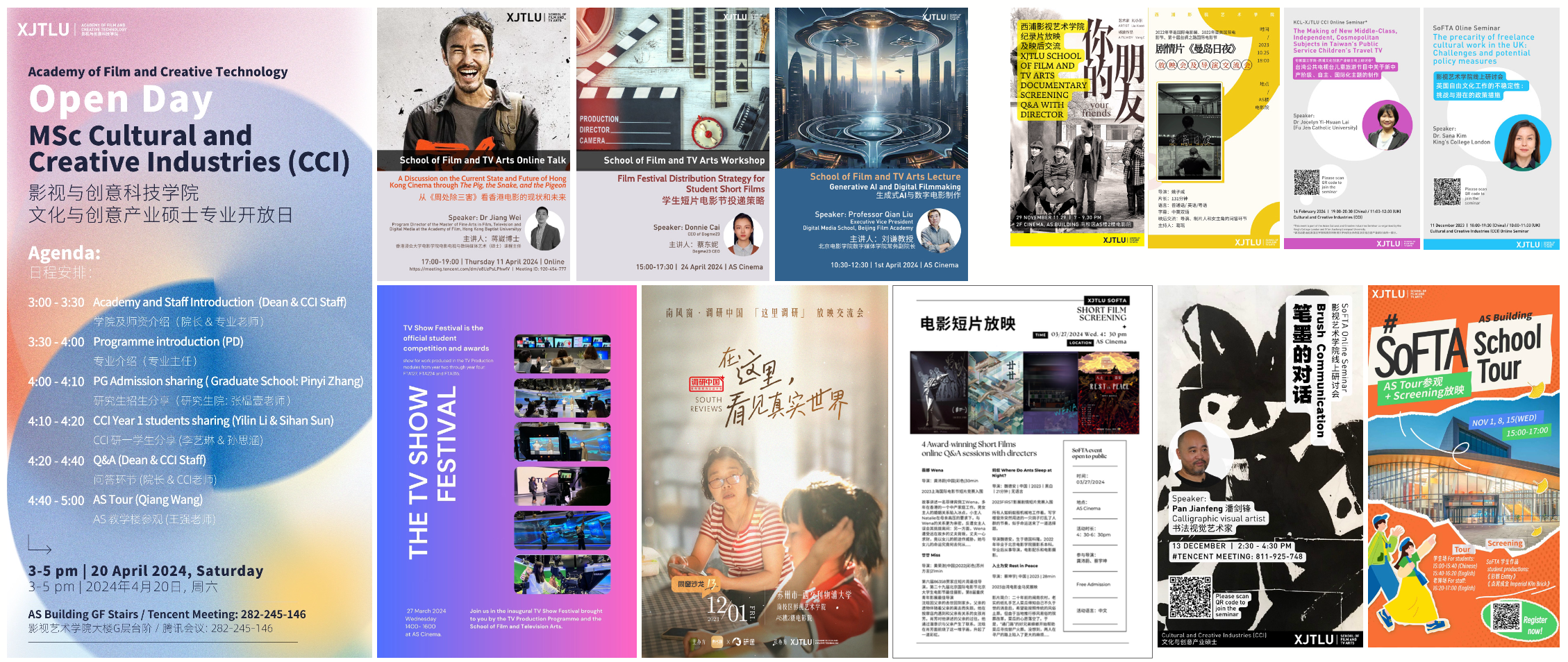
Students’ achievements over the years have been impressive. SoFTA students have won 35 awards at domestic and international film festivals, two theses received the Jiangsu Province Excellent Graduation Thesis Award, and they have garnered 44 prizes in various design competitions. Graduates have secured offers from prestigious universities such as the University of Cambridge, Columbia University, California Institute of the Arts, Carnegie Mellon University, the Royal College of Art, New York University, the University of London, and University College London. In terms of careers, graduates have worked as advertising directors, colourists, photographers, and independent filmmakers, collaborating with renowned companies like CCTV, Xi’an Film Studio, Kingsoft, Hainan Television, and Golden Harvest Entertainment.
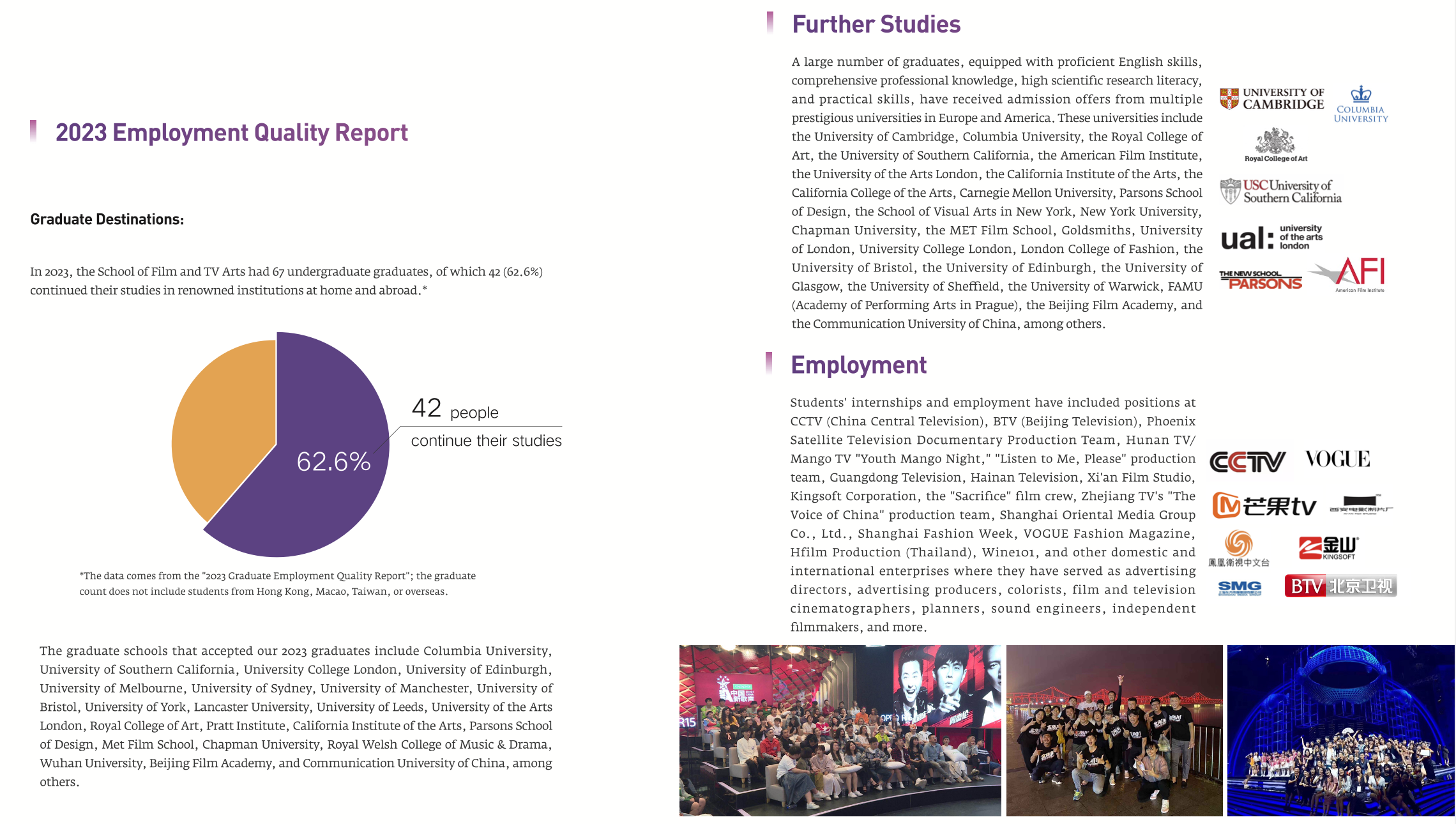
To conclude the meeting, Dr David William Strang (pictured below), Director of Education and Research, shared his insights for the new academic year. He encouraged students not to take the easiest path but to challenge themselves.
“What were the challenges you faced last year?” he asked, before emphasising that, for undergraduates, the new term is an opportunity to recognise their strengths and weaknesses and to fully explore and demonstrate their talents. He advised students to focus on the quality of their learning, not just the grades, and to embrace every opportunity for growth this year.
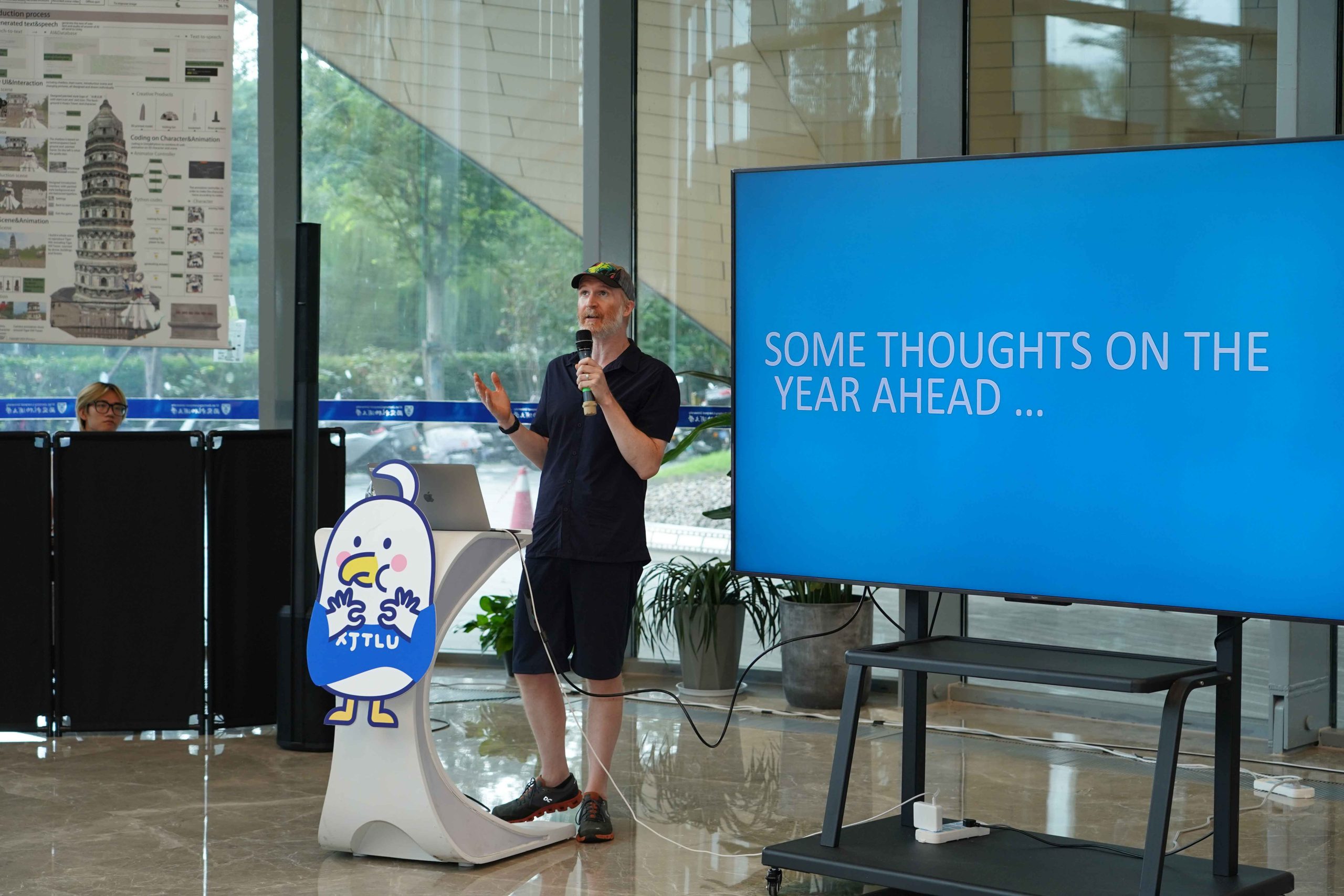
The welcome meeting ended with an interactive session where staff shared their research interests and personal experiences while answering students’ questions. This interdisciplinary exchange gave students from different programmes and cultural backgrounds a chance to get to know each other, share ideas, and collaborate, fostering cross-cultural communication. Through this exchange, both students and staff deepened their mutual understanding and looked forward to achieving greater accomplishments in the year ahead.
By Wenzhen Li
Pictures courtesy of the SoFTA Technical team
19 Sep 2024








